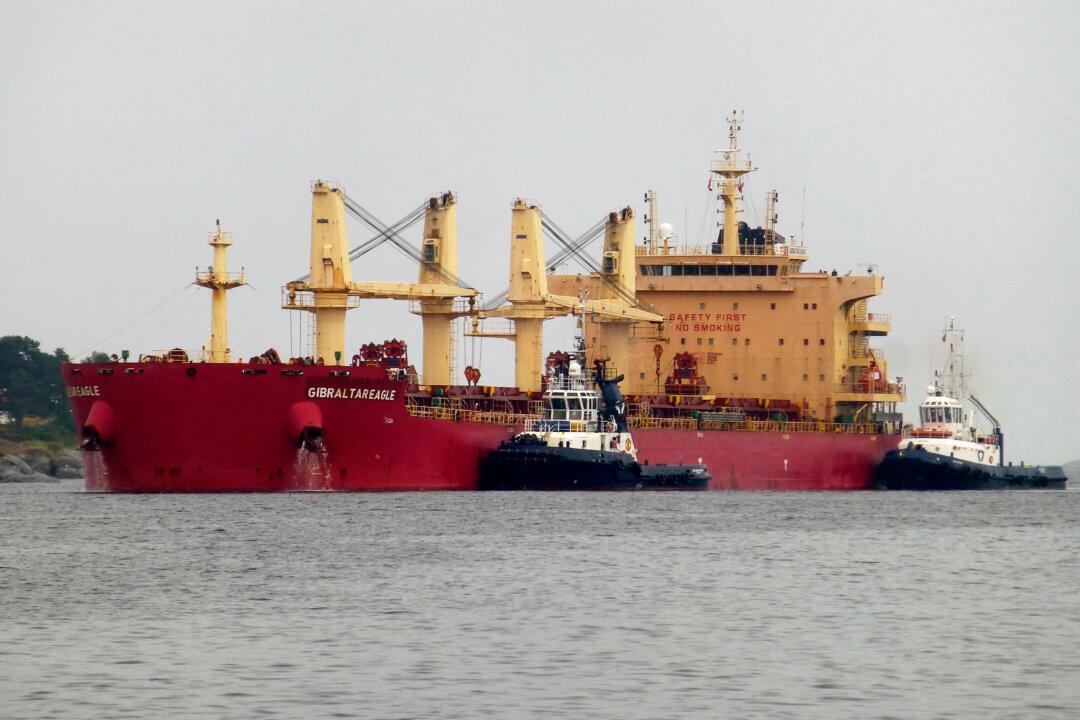Only a day after launching an anti-ship cruise missile at a U.S. destroyer in the Red Sea, Iran-backed Houthi rebels have struck again, this time hitting an American-owned commercial vessel off the coast of Yemen.
U.S. Central Command said in a Jan.15 statement that the anti-ship ballistic missile was fired from Houthi-controlled areas of Yemen and struck the American-owned and operated Eagle Gibraltar, a Marshall Islands bulk carrier passing through the Gulf of Aden.





